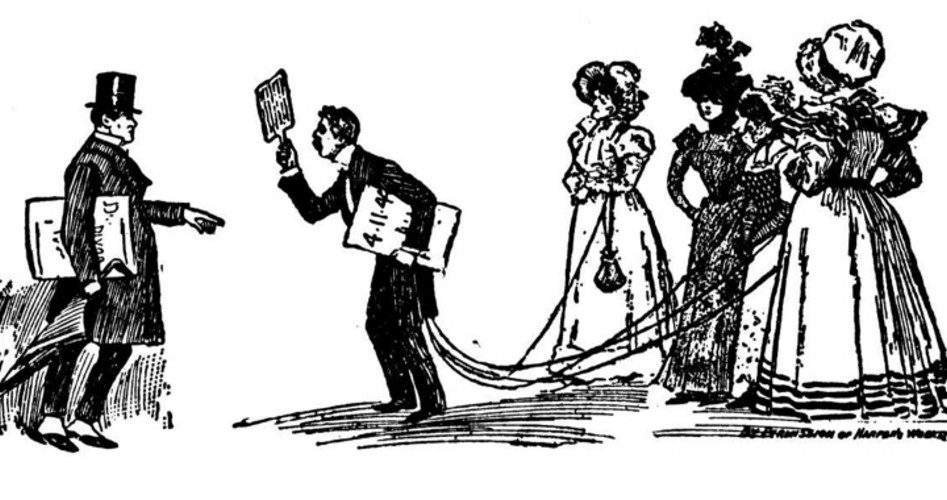
A federal judge in Utah has struck down a key portion of that state’s marriage law that makes polygamy illegal, raising concerns among pro-family leaders that the nation may be entering a new phase in an all-out attack on marriage.
On December 13 Judge Clark Waddoups of the U.S. District Court of Utah struck down a portion of the state law that prohibits polygamous cohabitation, ruling that it violated both the First and 14th Amendments to the Constitution.
The ruling came in response to a lawsuit by Kody Brown and his four “wives,” who are the the subjects of the reality show Sister Wives on the TLC network. Brown is only legally married to one of the women, but the religious sect the five belong to, called the Apostolic United Brethren, embraces polygamy and holds that Brown and the other three women are married in a “spiritual” union.
While all states ban bigamy (having two marriages at one time), Utah also prohibits polygamous cohabitation, a law Brown and wives contended violates their freedom of religion as well as their privacy rights. Waddoups’ ruling concurred with that charge.
Baptist Press News noted that in his ruling Waddoups “took issue with a 1973 state law that says a ‘person is guilty of bigamy when, knowing he has a husband or wife or knowing the other person has a husband or wife, the person purports to marry another person or cohabits with another person.’”
In his decision Waddoups referred to the 2003 Supreme Court ruling in Lawrence v. Texas, which struck down laws prohibiting sodomy. “Consensual sexual privacy is the touchstone of the rational basis review analysis in this case, as in Lawrence,” Waddoups wrote. “The court believes that Plaintiffs are correct in their argument that, in prohibiting cohabitation under the statute, ‘it is … the state that has equated private sexual conduct with marriage.’”
ChristianNews.net noted that “because Brown does not claim to be married to all of the women — nor does the state ban cohabitation in other relationships — Waddoups threw out the cohabitation section of the statute, while upholding the prohibition on bigamy.”
Wrote Waddoups: “The court finds the cohabitation prong of the statute unconstitutional on numerous grounds and strikes it. As a result, and to save the statute, the court adopts the interpretation of ‘marry’ and ‘purports to marry’ … thus allowing the statute to remain in force as prohibiting bigamy in the literal sense.”
Baptist Press News noted that “in effect, Waddoups legalized polygamy as it is practiced in Utah primarily by members of fundamentalist spinoffs of the Mormon religion. Such polygamous households typically do not have multiple marriage licenses, but treat all relationships between a man and the women with whom he lives as marriages. Waddoups ruled the cohabitation section of Utah’s anti-polygamy law violated the free religious exercise clause of the United States Constitution’s First Amendment and the due process clause of the 14th Amendment.”
The Associated Press reported that a spokesman for the Mormon Church (LDS) “said its members do not practice polygamy, and polygamist organizations have no affiliation with The Church of Jesus Christ of Latter-day Saints despite the fact the term ‘Mormon’ is ‘sometimes misleadingly applied to them.’”
Attorney Jonathan Turley, who represented Brown and his “wives” in the federal court, told reporters that “homosexuals and polygamists do have a common interest: the right to be left alone as consenting adults. There is no spectrum of private consensual relations — there is just a right of privacy that protects all people so long as they do not harm others.”
Brown released a statement applauding the ruling, saying that “while we know that many people do not approve of plural families, it is our family and based on our beliefs. Just as we respect the personal and religious choices of other families, we hope that in time all of our neighbors and fellow citizens will come to respect our own choices as part of this wonderful country of different faiths and beliefs.”
Among those decrying the ruling was Russell Moore of the Southern Baptist Convention’s Ethics and Religious Liberty Commission, who told the press: “This is what happens when marriage becomes about the emotional and sexual wants of adults, divorced from the needs of children for a mother and a father committed to each other for life. Polygamy was outlawed in this country because it was demonstrated, again and again, to hurt women and children. Sadly, when marriage is elastic enough to mean anything, in due time it comes to mean nothing.”
Tony Perkins of the Family Research Council noted that “same-sex marriage advocates have told us people ought to be able to ‘marry who they love,’ but have also always downplayed the idea that this would lead to legalized polygamy, a practice that very often victimizes women and children. But if love and mutual consent become the definition of what the boundaries of marriage are, can we as a society any longer even define marriage coherently?”
Matt Staver of the conservative pro-family legal group Liberty Counsel said that he and other champions of traditional marriage “have warned of this slippery slope” in their efforts to stop the legalization of same-sex “marriage.” “If marriage is deconstructed to include people of the same sex, then there is no logical or legal argument to ban polygamy or polyamory,” he said. “Same-sex marriage is the abolition of marriage and will destroy the most basic foundation of family and civil society.”
Noting that marriage predates government and civil authorities, Staver challenged that right of legislative bodies or courts to redefine its parameters. “Marriage was not created by religion or government and is ontologically a union of one man and one woman,” he said. “Deconstructing marriage will hurt children and society.”


